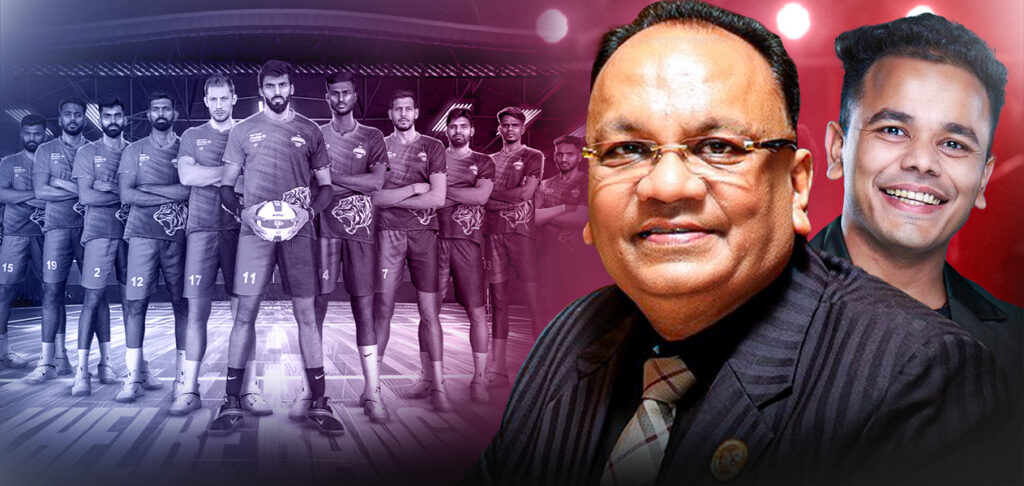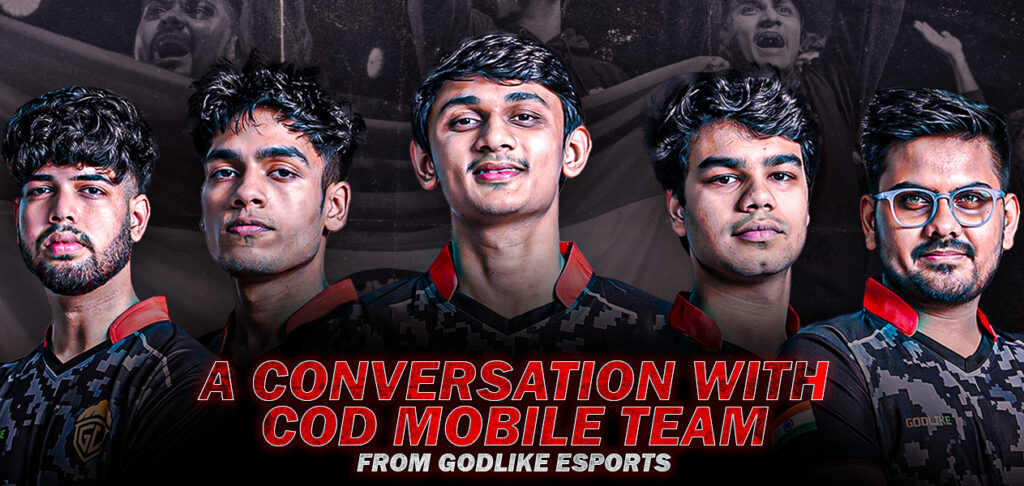With over 23 years of experience, Roland Landers is an accomplished leader from the Media, Entertainment, and Sports industry. Being the All India Gaming Federation (AIGF) CEO, Roland has overseen a massive rise in the popularity of online gaming in India. Here, at SportsKhabri, we had the opportunity to have an interaction with the current CEO of AIGF, the apex body for online gaming.
In our interaction, we talked about some of the challenges AIGF has faced in its six-year journey, the failure to recognize all skill gaming in certain states, the rise of the online gaming industry as a whole, and much more. So, let’s take a look at some of the snippets from our interaction:
Currently, the gaming industry follows a self-regulatory model. How effective has it been, and how can a centralized regulatory model boost this booming market?
The Indian gaming industry over the years has been working to bring due attention to this sunrise sector. Currently, the gaming industry follows a self-regulatory model which incorporates the necessary checks and balances to ensure sufficient responsible gaming and protection of gamers. Regulating this sunrise sector can boost investment trends in states, create jobs, and contribute economically.
As an industry body, AIGF has been at the forefront of ensuring global best practices for its stakeholders through the self-regulation skill games charter that covers all aspects of the online business process.
A centralized model that supports the AIGF self-regulatory mechanism will strengthen the process, ensure uniformity & stability in the Industry that will give a major boost to the entire ecosystem and its stakeholders.
The AIGF came into being in 2016, since then, what are the major challenges you’ve encountered in these five years and looking back, is there something you would’ve liked to have done differently?
With the objective to bring recognition to the online gaming industry, AIGF is currently in its 6th year. It is the first and only online gaming federation in India whose charter include all skill gaming formats across verticals.
Given the growth the Industry has achieved in a short span shows that we were able to see the potential very early and back our belief that the Industry will be a direct beneficiary of the digital India initiatives launched six years back. However, as with any other new industry, vertical, or sector, there were challenges initially.
In the process, we have learned that the reason for these challenges was the ambiguity of perception amongst the public because of inadequate information available. To deal with this and any other issues pertaining to the online gaming industry, AIGF has been at the forefront, working with relevant policymakers to demonstrate the economic benefits that accrue from the online skill gaming industry and spread awareness by reaching to the target audience through our various touchpoints and initiatives like industry reports and knowledge papers etc.
Although most Indian states have openly accepted online gaming of skills. There are a few states who have banned online games of skill, aligning it with gambling. What is your take on this?
Even though the online gaming industry is witnessing robust growth for businesses and in terms of player adoption, there still exists a lack of understanding and awareness. Online skill gaming cannot be termed as gambling just because it is subscription-led or involves an entry fee. The Supreme Court and multiple high courts have reiterated numerous times that online games of skill are not gambling, but in fact protected under Article 19(1) (g) of the Constitution.
However, gaming is a state subject under the Constitution and regulated by each individual state, while online skill-based games are permitted in most states, the absence of comprehensive regulations in this sector makes the subject complex. In addition to this, most of the State Gaming Acts and the central gaming act are archaic and were brought into effect much before the era of the internet. Moreover, differing state interpretations of online skill games make it difficult to build scale for businesses.
While there is no doubt that the offshore illegal betting and gambling websites that advertise and operate blatantly across states need to be banned, what, unfortunately, has got impacted is the online skill gaming businesses, which are registered Indian companies that pay direct and indirect taxes. Further, the industry in India is projected to grow faster than the global online gaming segment making it a great source for job creation and revenue generation for the country.
Hence, as an industry body, the All India Gaming Federation (AIGF) is committed to creating awareness amongst relevant stakeholders through industry reports, knowledge papers, conferences and events. Since its inception, AIGF and its advisory panel members have been at the forefront, working with relevant policymakers to demonstrate the differentiation of online skill-based gaming aspect and also highlight the economic & social benefits that accrue from the online skill gaming industry.
Needless to say, the introduction of the 4G network has been a blessing to the gaming industry, with 4G enabling people from remote areas to play online games. What is your take on the 5G network and how can this further accelerate the process?
We have already seen that shift happen. When we look at the entire evolution of the Indian gaming landscape – the entire software and game development has happened over the years in India. Now developments have been happening in terms of collaborative efforts, international teams working closely with the Indian game developers, and so on. When India’s creative strengths and tech abilities are combined we are able to do things on par with global standards. That is true for the gaming industry in terms of game development, software development, etc. Once 5G comes into place, it would definitely give a huge boost to the Indian gaming and game development industry. So whether it is from the point of view of developing globally recognized games to exporting tech will become a definite possibility.
With talks of 5G networks being launched before the end of 2022, and the use of AR/VR showing a surge among gamers all over the world. How can 5G help in bridging this gap for Indian gamers?
5G will empower the entire ecosystem. It will be able to better collaborate the physical and virtual gaming. 5G has the ability to do that.
It will bring a whole new experience for the sports fan as it offers support for multiple streams. It will unlock the potential of Augmented Reality (AR) And Virtual Reality (VR) in India. Enabled cameras on the field also eliminate the need to use cables to transmit information.
5G will also bring in low latency and high concurrency. Low latency ensures that the delay between your screen and the actual game is next to nothing. High concurrency means more people can get the same superlative experience at a particular location. These will help give a major impetus to the existing gaming industry.
Any new market needs a set of investors to grow. And for a market that is growing at a compound annual growth rate (CAGR) of over 40% in the past decade, what is it that the investors look into before committing to a sunrise sector like gaming?
The sector has caught the eye of investors lately and I feel India has an untapped market in gaming that is yet to evolve, hence startups have seen good VC traction.
Moreover, global giants like Alibaba and Tencent have invested and see great potential in the coming future.
In the last decade, the gaming industry has grown by leaps and bounds. How has it contributed to creating direct and indirect jobs?
According to the forecast, online gaming will keep on
As per EY estimates, fantasy sports increased more than 100 percent in 2019, while online skill-based card games grew about 30 percent. As per the forecast, online gaming will continue witnessing a robust CAGR of around 43 percent over the coming three years – becoming a $2.5 billion industry (about Rs 187 billion) and accounting for 40,000-plus direct jobs in India. Additionally, online gaming’s total indirect tax contribution in 2019 was pegged at around Rs 98 billion, with 2022 estimates being approximately Rs 286 billion.
The online gaming segment has the potential to bring in massive employment, through direct and indirect jobs that can be generated from ancillary sectors such as telecommunications, marketing, financial services, and banking, technology, events, and real estate. Moreover, there are many top game designing companies in India, which recruit professionals for game designing.
As per industry statistics, although India had the highest mobile game usage in 2020, in terms of market size, India is still the sixth-largest, behind the likes of China, the USA, Japan, South Korea, and the United Kingdom. Where do you see the Indian gaming market in the next five years?
The online skill gaming Industry has been consistently growing in excess of 30% CAGR over the last 3 years. As per the EY-FICCI Report 2021, the online gaming segment grew 18% in 2020 to reach INR77 billion, as online gamers increased by 20% from 300 million in 2019 to 360 million in 2020, transaction-based game revenues increased by 21% due to fantasy sports and casual gaming revenues increased by 8%, led by in-app purchases.
It is estimated that the online gaming industry will continue to grow and reach 500 million gamers by 2025 to become the third-largest segment of the Indian M&E sector.
I sincerely believe that with the much-needed support of the relevant policymakers across the States and the Center, India can become an online gaming superpower in the near future.


















